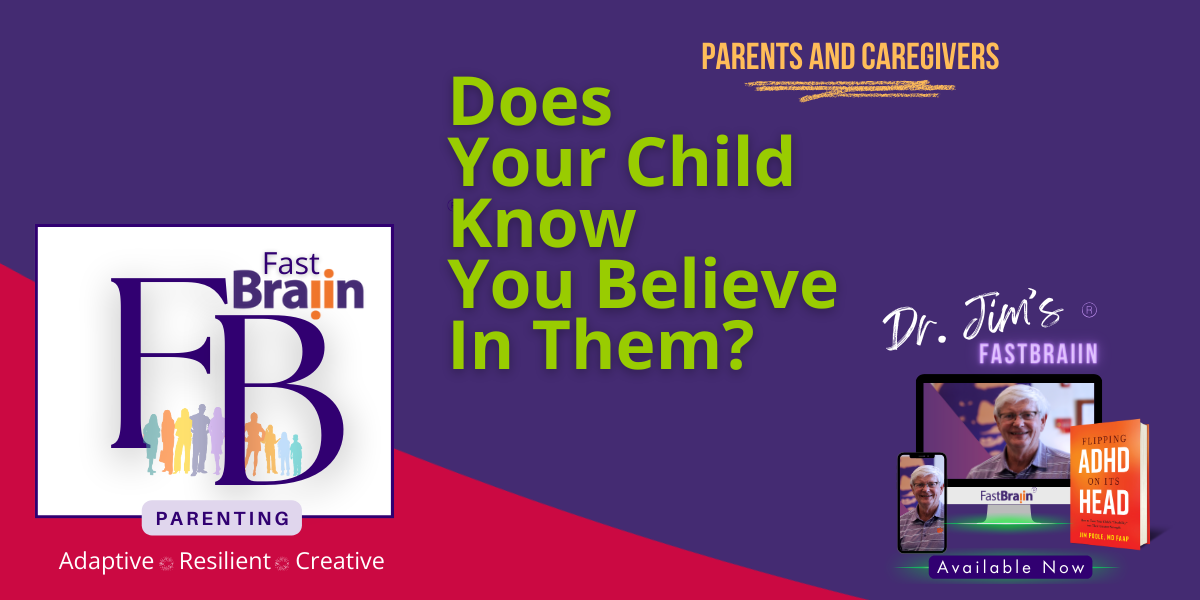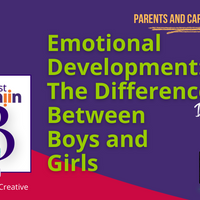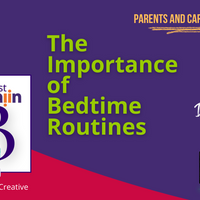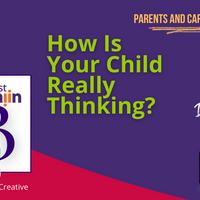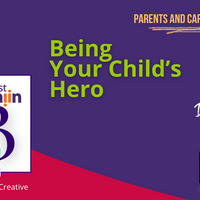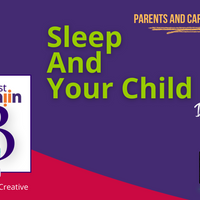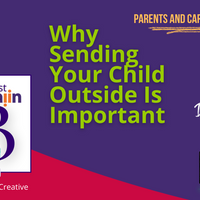Introduction:
Welcome to Dr. Jim's FastBraiin. I'm Dr. Jim Poole, and I have definitely FastBraiin! Today, I want to delve into the question of whether your child feels like you believe in them. It's a crucial aspect of their development and self-esteem. It's not just enough to tell them that you believe in them; you need to show it through your actions. In this post, we'll explore the importance of belief and support in a child's life, drawing insights from my book, "Flipping ADHD on Its Head."
The Power of Belief:
Belief is a powerful motivator. Merely telling your child that you believe in them doesn't have much impact if your actions contradict your words. Children, and even adults, learn by example. They observe what you do and draw conclusions from it. Just like the story of Clemson University's football team, who no one believed could win against Alabama. Despite the odds, they emerged victorious. When the coach was questioned about their success, he attributed it to his unwavering belief in his players. They knew he believed in them, and that made all the difference.
Belief and Challenge:
Believing in your child doesn't mean blindly accepting everything they say or do. It means supporting them while challenging them to grow. Sharing a personal experience with my father, I knew that he believed in me, even when we didn't see eye to eye. He would challenge me and discipline me when necessary, but that never wavered his belief in my capabilities. It was through his unwavering support and belief that I understood I could reach my goals and find success.
Belief in the Parent-Child Relationship:
Belief shouldn't be a one-way street. Your child also needs to know that you believe in yourself and your ability to guide them. When they see your self-belief, it instills confidence and reassurance in them. It's important to create an environment where they feel safe to explore their potential and take risks, knowing that you are there to support them every step of the way.
Conclusion:
In conclusion, belief plays a vital role in a child's life. It's not enough to simply say that you believe in them; you must show it through your actions. Children learn by example, and when they see your unwavering belief in their potential, it empowers them to push past their limits. Through the stories shared in my book and personal experiences, I hope this blog post has highlighted the significance of belief in nurturing your child's confidence and helping them realize their full potential. So, does your child know that you believe in them? It's time to reflect on our actions and ensure that our children feel supported, cherished, and believed in.
~~
Video Transcript:
[00:00:00] Dr. Jim Poole, MD: Welcome to Dr. Jim's FastBraiin. I'm Dr. Jim Poole, and I have definitely FastBraiin! Welcome to the FastBraiin Minute. This is where I read from my book, "Flipping ADHD on its Head," and pick one topic and discuss it. So this morning, I'm going to talk about the question of, "Does your child feel like you believe in them?" And that is the quote I have on page 47.
[00:00:27] I want you to really think about this now by telling someone, Oh, I believe in you that doesn't do squat. Kids and even adults, we learn by example. We learn by seeing what you do. Does the coach believe in their child? I remember Clemson University. They were going up against Alabama and nobody believed that they could have a chance of winning. Well they ended up winning. And when the coach was quizzed later he said, "I believed in my kids and they knew that I believed in them and that's the [00:01:00] most important thing."
[00:01:01] I can talk about my father and that is I knew that he believed in me. Did I agree with everything he said? No. Did he challenge me? Yes. Did he chastise me and discipline me? Yes. That does not mean he doesn't believe in me. It means that he does believe in me and that if I do the things that are needed, I can get to where I want to go or become and feel successful.
[00:01:25] So does your child believe in you? Does your child understand that he or she believes in you and you believe in them?
[00:01:35] Thank you.

